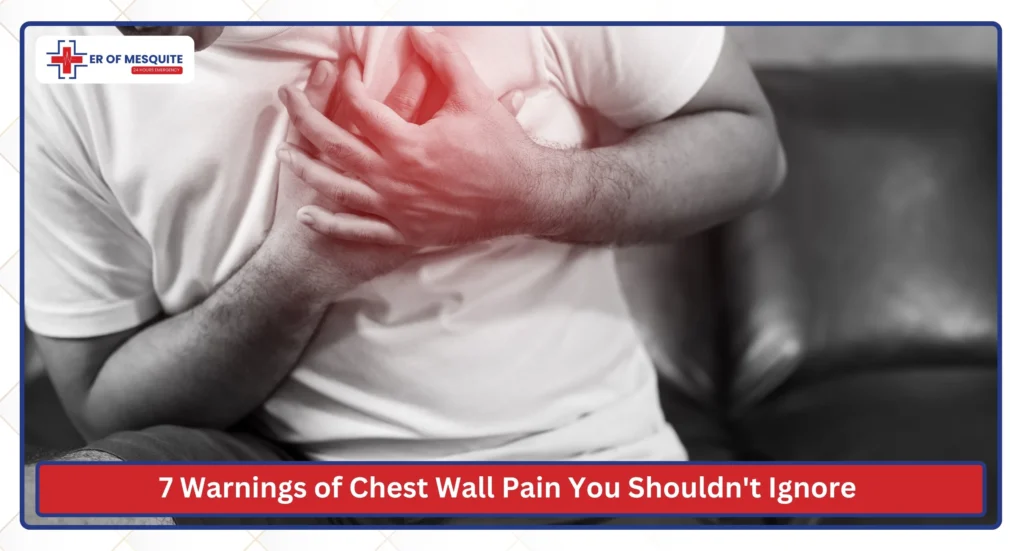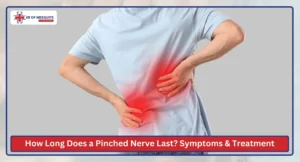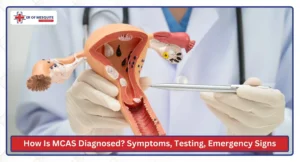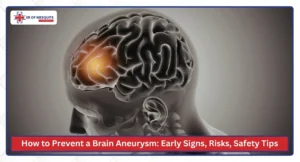If you have ever noticed a sharp and aching pain in the chest wall, especially while breathing, moving, and pressing the chest, then you might be experiencing chest wall pain. This type of discomfort often occurs due to strained muscles, pneumonia after surgery, or inflamed cartilage.
In this blog, we will help you understand the 7 top warnings of chest wall pain that require immediate medical attention.
What is chest wall pain?
Chest wall pain occurs due to discomfort from the muscles, bones, or joints in your chest wall. It appears due to multiple reasons, such as after surgical medical procedures, inflammation in the chest, muscle strain in the chest, and hyperinflated lungs.
At times, people often confuse chest pain with heart-related issues. It mainly occurs due to musculoskeletal causes and might cause serious discomfort if not identified during the initial stages.
What Does Chest Wall Pain Feel Like?
It is usually described as follows:
- Sharp and stabbing pain
- Gets worse while coughing.
- Difficulty in touching the area
If you’re experiencing any such pain in the chest wall, then you should instantly visit the ER of Mesquite and get a digital x-ray of the chest to identify the root cause.
7 Signs of Chest Wall Pain Not To Ignore
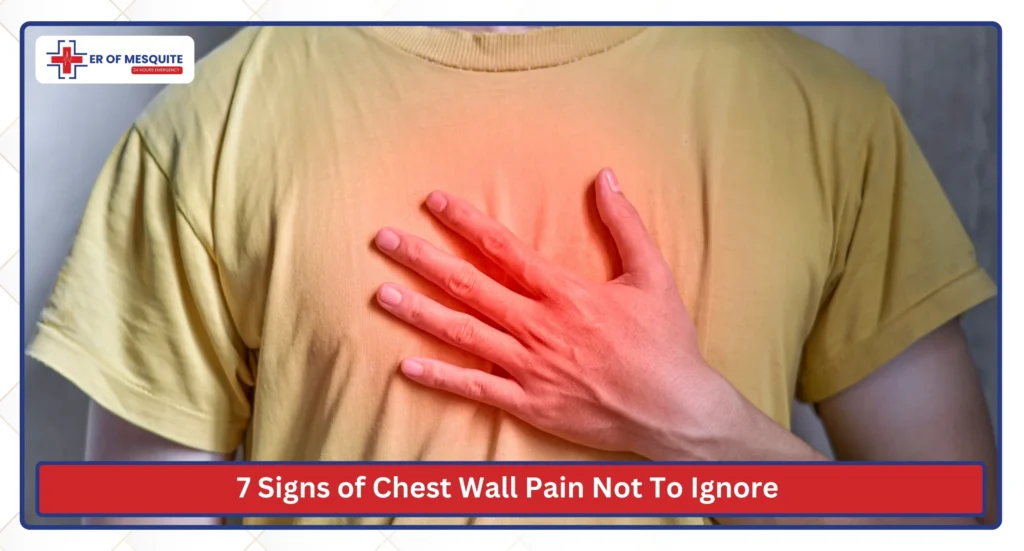
If you’re experiencing discomfort in your chest that gets worse upon physical activity, then it could be a sign of chest wall pain. Unlike heart-related problems, musculoskeletal chest wall pain is different and requires different medical attention.
Here are the seven valid signs that you might be experiencing chest wall pain that requires medical evaluation.
Pain in Chest That Worsens While Moving or Breathing
If you feel that your chest pain increases while breathing deeply, coughing, or moving the upper body, then this type of musculoskeletal chest wall pain might occur due to muscle strain or inflammation.
Swelling Around The Chest Area
All of a sudden, if the area around your chest starts swelling or getting red, then it might be a sign of inflammation in the chest or pneumonia after surgery, which occurs due to the infected fluid around the lungs affecting the nearby tissues.
Constant Pain in Chest
Chest pain caused by a muscle strain in the chest or muscle inflammation might get better after resting for a while, but if the pain remains persistent or keeps coming back after days, then it could be a sign of chronic chest inflammation that requires immediate chest pain treatment.
Pain That Radiates Towards Shoulders, Back, or Abdomen
Chest wall pain at times can move toward the shoulders, back, or abdomen due to nerve involvement. If you’re experiencing such discomfort in your stomach, shoulders, back, underarm area, or abdomen that gets worse after a physical activity, then you should instantly seek medical attention.
Shortness of Breath or Chest Tightness
The chest muscle pain is usually harmless, but if you encounter difficulty during breathing, shortness of breath, or chest tightness, then it could be due to hyperinflated lungs, causing rib cage muscle pain.
Severe Pain After Surgery
If you have recently undergone surgery and experience intense pain in your chest wall, then it could be pneumonia after surgery, causing severe pain in the chest wall.
Intense Pain Without Any Physical Activity
At times, you might notice an intense pain in your chest without getting involved in any physical activity. This sign of chest wall pain should not be ignored, as it might be due to conditions such as internal abnormalities or hyperinflated lungs.
Common Causes of Pain in Chest Wall Pain
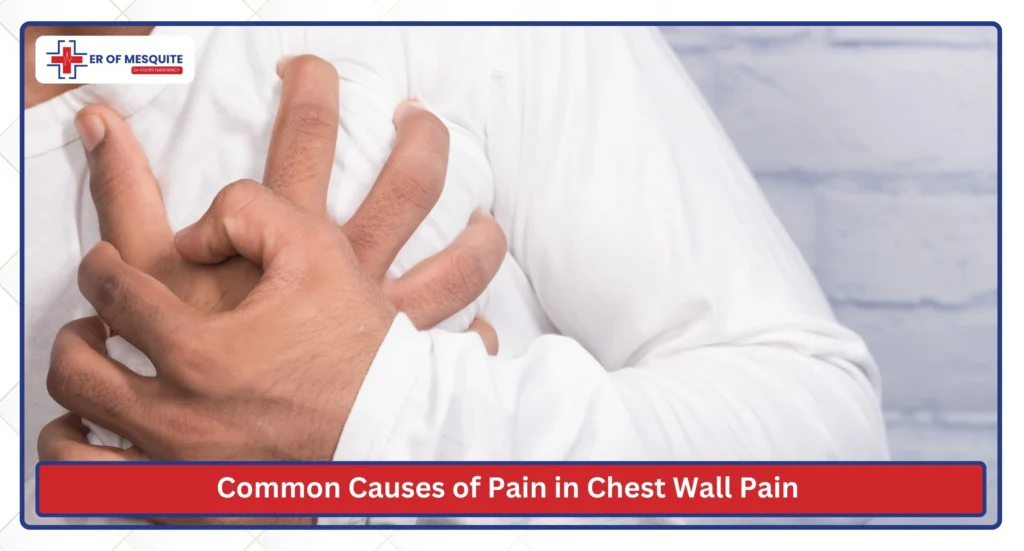
Understanding the causes of chest wall pain can help avoid the chances of suffering from discomfort in the chest. Below are a few of the most common reasons for chest pain in the chest wall.
- Inflammation in Costochondral Joints
- Muscle pain due to strain
- Rib injury or surgery
- Bad posture and an unhealthy lifestyle
- Constant tension in the chest wall
Why Chest Pain Shouldn’t Be Ignored
Although chest wall pain is not harmless, it might be the root cause of many underlying health issues or could affect your daily routine activities if not treated. Pain that gets worse while breathing, doing physical activity, or coughing or radiates towards the shoulders, back, abdomen, or other parts of the body requires immediate medical attention.
Furthermore, experiencing chest pain while recovering from surgery, illness, or any other chest-related issues is also a sign of serious pain in the chest wall.
At the ER of Mesquite, we understand the importance of medical urgency during chest pain; that’s why our team is available 24/7 to provide you with the best emergency service during such a condition.
Frequently Asked Questions (FAQs)
Why does the chest wall hurt?
Chest wall pain is caused by musculoskeletal issues, which trigger the underlying conditions causing pain and discomfort in the chest wall.
How to instantly treat chest wall pain?
Mild chest discomfort can be treated through rest, whereas if the chest pain recurs after a few days, it should not be ignored.
Is chest wall pain dangerous?
In most cases, chest wall pain is not harmless, but if the pain is constant and causing redness and tightness in the chest, then it requires immediate medical attention, as it might be due to a serious internal issue.
Can chest wall pain radiate towards the back?
Yes, since chest pain is caused by infection radiating to nearby tissues, chest wall pain can radiate to different parts of the body, including the back, shoulders, stomach, and abdomen.
How to test the chest wall during pain?
To check the condition of the chest, you can get a digital X-ray of the chest wall.

